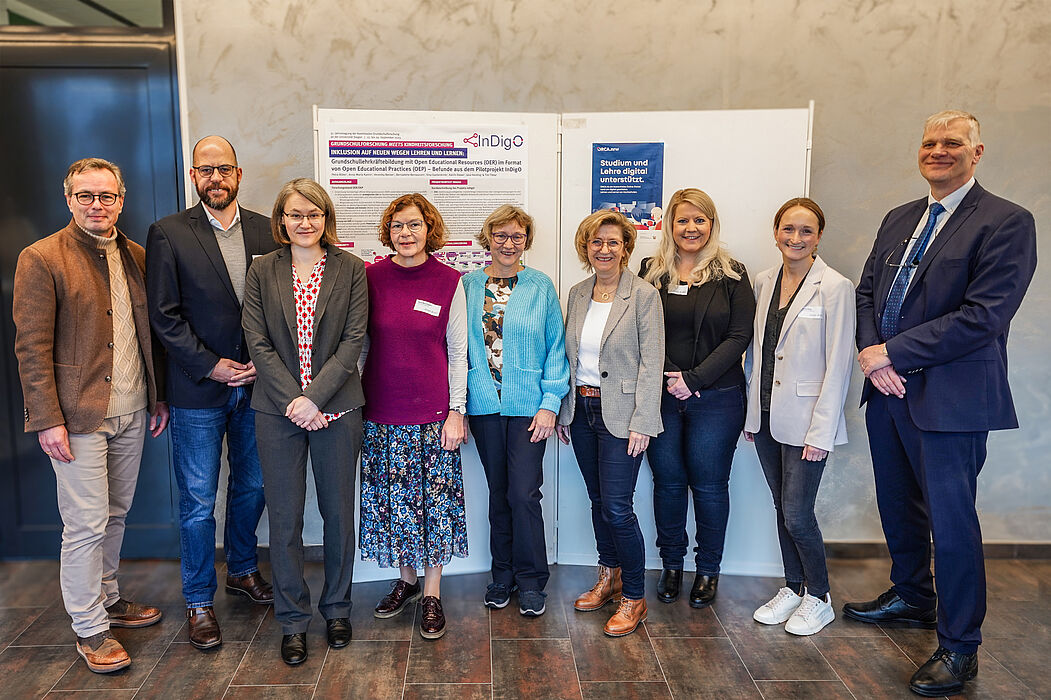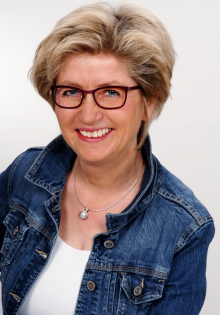A common "culture of sharing" with OER materials
Digital learning content that can be freely downloaded, used, further developed and made available in new versions - these are so-called "Open Educational Resources" (OER). In addition to the provision of such teaching/learning materials, it is also about the collaborative use of these via a new "culture of sharing" in learning communities. So-called "Open Educational Practices" (OEP) were tested in the pilot project "Learning, developing and disseminating inclusion and digitalisation in OER format" (InDigO) - funded by the Ministry of Culture and Science of the State of North Rhine-Westphalia (MKW NRW) - with teachers from primary school education and special needs education at seven NRW partner universities for the subject areas of "inclusion" and "inclusive media education" and evaluated with a view to the potential for improving the quality of teaching. The result: "Sharing expertise, experiences and open teaching/learning materials in an OER specialist community can help to incorporate different perspectives into your own teaching and gain new inspiration," explains project manager Prof Dr Petra Büker from the Paderborn Institute of Educational Science. The prerequisite is a culture of dialogue and agility in the joint development of teaching methods.
Framework conditions must be right
For the project "Learning, developing and disseminating inclusion and digitalisation in OER format" (InDigO), cross-university collaborations between lecturers and students, so-called "learning communities", were formed. This has shown that OER materials can both enrich lecturers' existing teaching concepts and fill gaps. "However, the exchange of ideas and the openness of teaching are even more important than the freely accessible materials themselves," emphasises Büker. There is also a need for supportive framework conditions and incentives for the production of further OER. "As the lecturers' requirements are individual and the teaching content is specific, suitable OER content was not always available on the platform used. Developing new materials also offers students the opportunity to be even more involved in the design of their teaching," says media educator Prof Dr Anna-Maria Kamin from Bielefeld University, who is part of the extended project consortium.
At the same time, the use of OER materials also requires a number of technical prerequisites. "Knowledge of how to use the licences and a low-threshold infrastructure are essential," says Prof. Dr Gudrun Oevel, who supported the project on behalf of the Paderborn Centre for Information and Media Technologies (IMT). The North Rhine-Westphalian state portal for studying and teaching "Open Resources Campus NRW" (ORCA.nrw), for example, offers support and advice.
Project completion is just the starting signal
At the end of the project, a transfer conference at Paderborn University entitled "Paths to a culture of sharing" provided an opportunity to learn about the experience gained with Open Educational Practices (OEP) and the open, inclusion-oriented teaching and learning materials developed. Prof Dr Kerstin Mayrberger from the University of Hamburg and Prof Dr Daniel Otto from the European University for Innovation and Perspective Backnang provided insights into the development of OER and OEP in educational research in their keynote speeches.
"Even though the InDigO project is celebrating its conclusion with this conference, the paths to a culture of sharing have only just been opened," summarised project coordinator Jana Herding. The inclusion community that has been established in the field of primary school education is to be consolidated and expanded in the long term. There are also plans to develop a network from the "learning communities" trialled as part of the project. Interested parties are already invited to join the OER specialist community. Further information and access to inclusion-oriented OER material can be found at the project website.
This text has been translated automatically.


